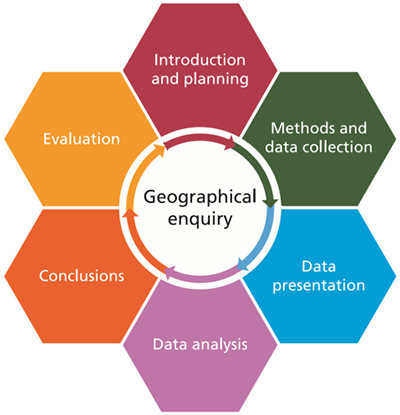 Student-led research is increasingly a feature of curriculum assessment in UK schools and many children and young people are being asked to carry out their own independent research. Subjects including biology, physics, psychology and geography require students to design, undertake and evaluate their own research projects. For many practitioners supporting these students this presents a number of challenges. Researchers from the Children’s Research Centre (CRC) developed a partnership with the Field Studies Council (FSC).
Student-led research is increasingly a feature of curriculum assessment in UK schools and many children and young people are being asked to carry out their own independent research. Subjects including biology, physics, psychology and geography require students to design, undertake and evaluate their own research projects. For many practitioners supporting these students this presents a number of challenges. Researchers from the Children’s Research Centre (CRC) developed a partnership with the Field Studies Council (FSC).
The FSC is the leading provider of geography and biology fieldwork for schools and continuing professional development for practitioners; and welcome over 60,000 students on geography courses at its UK wide network of centres each year. The CRC provides resources, teaching materials and guidance to support student-led research. This partnership evolved in response to changes in the A Level Geography curriculum requiring students to design, carry out and report on an independent piece of field work enquiry. These individual investigations are now a compulsory part of A level specifications (launched in September, 2016) for geography.
The Children’s Research Centre in partnership with the Field Studies Council
 The enquiry cycle model
The CRC in partnership with the FSC has developed a fold out key to support student-led research, with a particular focus on the requirements of A Level geography. This resource is endorsed by the awarding bodies (AQA, WJEC and OCR) and have been disseminated nationally to over 30,000 students and 16,000 practitioners.
The enquiry cycle model
The CRC in partnership with the FSC has developed a fold out key to support student-led research, with a particular focus on the requirements of A Level geography. This resource is endorsed by the awarding bodies (AQA, WJEC and OCR) and have been disseminated nationally to over 30,000 students and 16,000 practitioners.
Practitioners and students are supported in each stage of the enquiry process, underpinned by the principles of student-led research central to the Open University’s Children’s Research Centre (CRC). The fold out key provides a series of activities targeted to address key issues and stages within the research process. The values underpinning quality research refer to the researcher being objective, critical and ethical.
- Be objective: Systematically follow a step-by-step scientific procedure to carry out your enquiry that minimises bias.
- Be critical: Evaluate evidence from different perspectives to develop a rationale that justifies your selection of methods and interpretation of your findings.
- Be ethical: Give due care and attention to the impact or possible harm that your enquiry may have upon the environment and the people in it.
OU Researchers
- Dr Trevor Collins
- Dr Victoria Cooper
- Dr Chris Gomez
Partners
- Sam Rudd
- Simon Norman
- Janine Maddison
- David Morgan
- Rebecca Kitchen



Rate and Review
Rate this article
Review this article
Log into OpenLearn to leave reviews and join in the conversation.
Article reviews